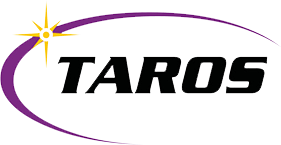Computational Chemistry and Molecular Modeling
Home » Drug Discovery » Computational Chemistry and Molecular Modeling
Cheminformatics, virtual screening and molecular modeling
Collaborating with our computational chemistry group puts profound chem- and bioinformatics, virtual screening and molecular modeling expertise at your fingertips. We routinely apply computer sciences in computational chemistry approaches, for example methods for structure-based drug design in case structural data of the target protein is available, or ligand-based drug design when structural information of the target is missing or not fully reliable. Our expertise also encompasses pharmacophore modeling, scaffold hopping and molecular de novo design. Our computational and medicinal chemists are working seaminglessly together in interactive molecular design sessions to rapidly generate hypotheses for molecular drug designs that are immediately assessed in suitable in silico models before molecules are prioritized and selected for syntheses in our laboratories.
Our computational chemistry services include:
- Chemo- and bioinformatics
- Computer-Aided Drug Design (CADD)
- Ligand-based drug design
- Structure-based drug design
- Fragment-based drug design
- Virtual screening
- Compound library design
- Chemogenomics
- Active site identification

In Medicinal Chemistry research, we are working with a broadly experienced team on all biomolecular targets from any gene family in any therapeutic area. Our expertise ranges…

High quality library design requires chemical creativity and profound synthesis knowledge to achieve the highest possible molecular diversity. Our efficient production process reduces…
Looking for a computer-aided drug design team?
Great impact on medicinal chemistry and the overall drug discovery project
At Taros we typically follow a multidimensional optimization (MDO) concept to avoid sequential testing and to address key issues in parallel and multi-objective screening cascades as early as possible, preventing optimization dead-ends and saving costs. The MDO concept allows us to assess in silico molecular properties and to prioritize molecular designs according to their highest likelihood of becoming successful clinical candidate molecules.
- Our computational scientists always collaborate closely with our medicinal chemists as well as external partners and clients to solve project challenges and reduce project timelines.
- Our proprietary project management software TarosGate® allows our scientist and clients to jointly analyse data and thereby provides support for informed selection of the next steps in the project.
- We have a profound IT infrastructure which supports our cheminformatics and molecular modeling activities.

Route Scouting & Optimization
Custom Synthesis
As a leading Contract Research Organization in Europe, Taros provides valuable contract discovery for synthetic organic chemistry, chemical process development, and…

Indications and Gene Families
We provide expertise on G-protein coupled receptors, nuclear (hormone) receptors, enzymes and transporters, ion channels, as well as protein-protein interactions and…

